
Death is inevitable but yet, the reality is that it’s still a part of life which most people find difficult to accept. It breaks into our lives with irresistible force, and robs us of those we love. So it is understandable that a person feels at a loss when it comes to coping with death and its aftermath That bond, unbreakable in life, is broken, and all you are left with is only your memories and an agonising indescribable heartache.
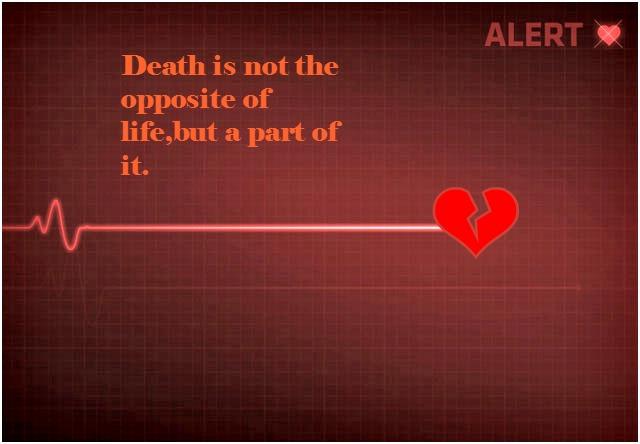
Losing a loved one in death is excruciatingly painful. The pain of death cannot be eluded, and its finality can be devastating. The immeasurable pain can plunge you into the depths of an unfamiliar world of overwhelming emotions, including:
Shock; numbness; sadness; loneliness; confusion; fear; emptiness; hopelessness; depression; guilt; anger; and anything in between...
The pain and struggle that a bereaved person feels is beyond comprehension, they descend deep into the abyss of despair as they try to come to terms with their loss.
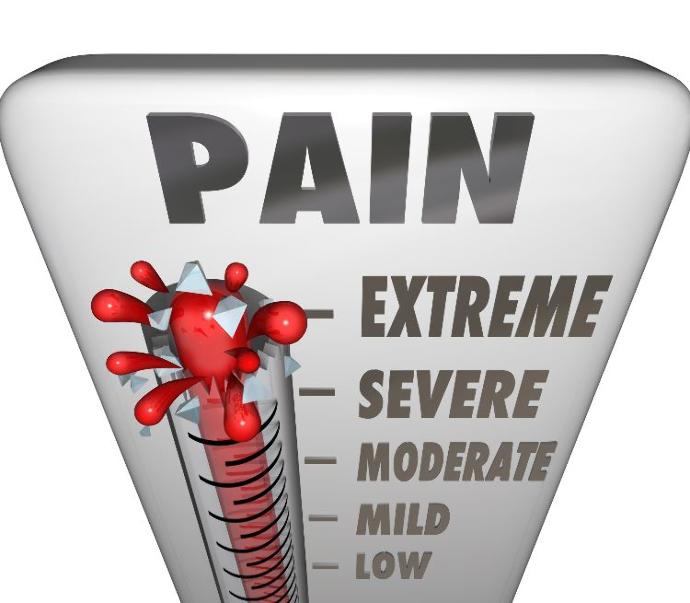
GRIEF
Grief is loves unwillingless to let go, it is a uniform process that we experience as the result of a loss. Everyone’s experience of grief is unique, so not everyone grieves in the same way. Each individual defines their own healing process. If someone doesn’t outwardly display their sorrow, that does not mean they are suppressing their feelings, so it would be unkind for others to draw conclusions about those who do not outwardly display emotion after the death of a loved one. Everyones actions and reactions are different when faced with heartbreak and emotional pain, so it would be unwise and unfair to judge how another person responds to tragedy.
A loved one dying can have a detrimental effect on a person....physically, mentally and emotionally, but grief is a necessity because the only cure for grief is to grieve. In time, grieving helps you to move on despite the enormity of your pain and loss. You somehow find your own way of dealing with the pain, and find a way of surviving despite your inward turmoil and suffering. The best thing you can do is to allow yourself to feel the grief as it comes over you. Don’t resist it because that will only prolong the natural process of healing. Remember, there is no time limit to the grieving process.

STAGES OF GRIEF
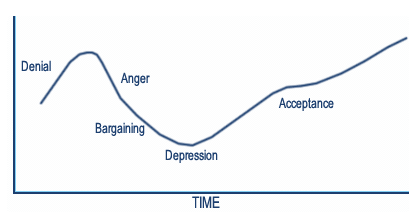
SHOCK & DENIAL
At first, a person is unable to process their feelings. They’ll go into a state of paralysis so their immediate reaction will Shock and Denial, but these are both coping mechanisms which provides an emotional protection from being overwhelmed by the intensity of the loss. They just feel numbed disbelief without any immediate feeling. In order to avoid the pain they may deny the reality of their loss, but this will wear off after they acknowledge the impact of the loss. The Survivor's life still goes and they will almost certainly have family commitments ,and other obligations to consider. Plus, they face the task of planning the funeral and alerting relatives ,so they must find the strength to get through this difficult period. Denial and shock are essential roles to get through this traumatic time so they are able to get through their daily life.


ANGER & GUILT
This stage will be an outpouring of bottled up emotions which were inhibited during the “shock & denial “phase. The person may verbally and/or physcially lash out in anger, because they feel powerless and helpless. They may vent their anger towards other people, but anger is a normal human emotion during the grieving process. Anger is an outward manifestation of emotional pain, guilt, fear and frustration. They may even lay unwarranted blame for the death on someone else or even on themselves. They may become burdened with guilt and have persistent thoughts about "what could have been done by them" or "by somene else to contribute to the death". They may also question "what they could have done to prevent the loss". Deep remorse and regret surface as they dwell on things like "what they did, or didn’t do with their loved one while they were alive" or "if only they'd been kinder" and "spent more time with their loved one".
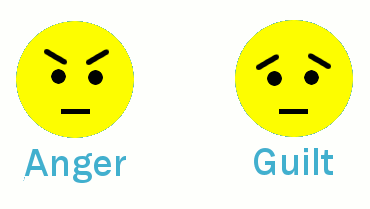
BARGAINING
During this stage of mourning they will endeavour in vain to find a way out, and their thoughts become preoccupied about how they could have prevented the loss. They will question “why me” and in their desperation they will attempt to beg,plead and negotiate with a "higher power "and try to make a deal by making vows to "change their ways" or "become a better person "in an attempt to bring their loved one back. Even though the person knows at some level this won’t happen, and that they can’t bring their loved one back...bargaining with a "superior being" can provide them with a small amount of comfort, and more time to come to terms with their loss.

DEPRESSION
During this stage they will face an unbelievable amount of emotional pain and suffering which becomes unbearable. They may start to isolate themselves which can lead to and loneliness, and emptiness. Depression can be a sign that the grieving person has begun to accept their loss. This is usually the point where their healing begins. This stage is when the person fully comprehends the magnitude of their loss, because their realization of the inevitable has become their reality.
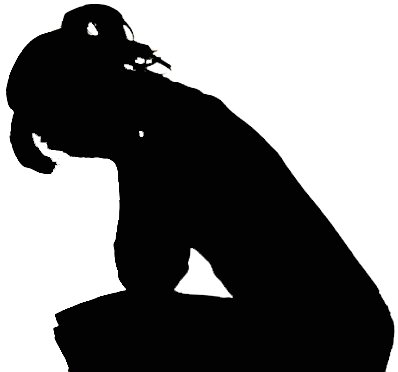
ACCEPTANCE & HOPE
This is the last stage of grieving. The person learns to accept and deal with the reality that their loved one has gone and nothing can bring them back. This doesn’t mean they will be instantly happy, it just means their grief will soften, and they are learning to accept their great loss. They will finally find a way forward through their anguish, and start to look to the future and plan a life without their loved one being part of it.

MOVING ON WITH LIFE
Working through the stages of grief will help the grieving person to move on and forward with their life and they’ll eventually start to adjust to life without their lost loved one. Physical symptoms lessen, and the depression begins to lift slightly. Gradually they will start to anticipate some good times to come, and find enjoyment in experiencing “living” again. Even though thinking about their loved one will cause them some pain, the heartwrenching unbearable pain will be gone.
In time, the grieving person will be able to remember and celebrate the life of their loved one. A lot of people keep mementos ,because it can help to ease the sadness and bring back a little joy into their life.Some people gain comfort from donating to a favorite charity of the deceased, framing photos of fun times, passing on a sentimental memento to family members or naming a baby after their loved one, or planting a garden /tree in memory. It is up to the grieving person what they choose to do, whatever they feel allows them to honor that unique relationship in a way that feels right to them. Some people find that reaching out and helping others dealing with the loss has the added benefit of making them feel better as well. Sharing stories of the deceased can help everyone cope.
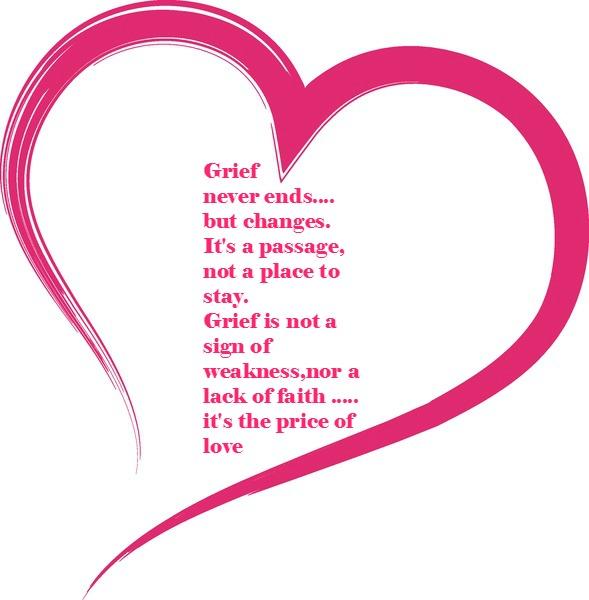
Ways in which a grieving person can move on despite their huge loss
Talk about the death of your loved one with friends and family, it will be painful at first but don't deny the death or it will just isolate you, and isolation leads to depression and lonliness.
Survivors guilt can cause a grieving person to feel guilty about moving on, as if it was betraying their loved one, and moving on would mean forgetting him/her. Remember, your loved one wouldn't want you to live the rest of your life grieving for them.
Avoid making hasty decisions, such as moving to another home or entering into a new relationship. Such changes should be made only when you have had ample time to adjust to your new situation in life. Such drastic decisions lead to regrets.
Allow yourself to remember. Try to recall happy memories of the times you shared with your loved one, perhaps by looking at photos. In time, these memories will help you to heal rather than cause you pain.
Accept your feelings and embrace the sorrow.It helps with the healing in the long-term.
On certain occasions painful memories may come flooding back, but gradually the distressing symptoms will ease. You will always remember them and miss them, but the pain will never be as severe as it was during the initial grieving process.
Take care of yourself and your family. Eat healthy, exercise and get plenty of rest as it helps you to get through each day and move forward.

Some people experience “complicated grief ”. They become plagued with an overwhelming feeling of anger, guilt and remorse, so they can’t move onto the next stages of grief. Those who face "severe grief" would benefit by seeing a licensed Psychologist. A Bereavement councillor who specializes in grief will help them to build their resilience and develop strategies to get through their sadness and help them to rebuild their life.

My father died from cancer last year, and after he died I felt like I had lost my "safety net" from under me, because he wasn’t just my father but my best friend too. I felt like I was drowning in my sorrow, and it seemed like my heart was actually "bleeding" due to the insufferable emotional pain I was going through. Watching him suffer made me feel so helpless...I just wanted to take away his pain.
Just before he passed away, I kissed his forehead and told him how much I loved him, and not a day would go by that I wouldn't miss him. I held his hand and as he smiled at me through his pain ...the words he used to say to me echoed in my mind. He always used to remind me that...
It isn't always a persons tears that measure their pain....sometimes their pain is measured by the smile that they are "wearing".
When I looked beyond his smile I suddenly realised just how true his words were.
Although I still miss him everyday, I can now look at pictures of him and smile instead of breaking down in tears. I can now talk about my happy childhood and the treasured memories that no one can take away . Time didn’t heal my pain, but it did teach me how to learn to live with it, and find a way of living my life without him being part of it anymore. My father always taught me how to enjoy "living" despite adversities, he taught me how to adapt and find the courage and strength to go on whenever I faced challenging and painful situations. So I try to resolve to keep on "living" and be happy despite my pain of losing and missing him...just like he taught me and wanted me to.
When someone you love becomes a memory, the memory becomes a treasure...
Pain is proportional to the amount a person loves, so I now realise that the pain I feel of losing my father is only equal to how much I love him ♥ ♥


 Holidays
Holidays  Girl's Behavior
Girl's Behavior  Guy's Behavior
Guy's Behavior  Flirting
Flirting  Dating
Dating  Relationships
Relationships  Fashion & Beauty
Fashion & Beauty  Health & Fitness
Health & Fitness  Marriage & Weddings
Marriage & Weddings  Shopping & Gifts
Shopping & Gifts  Technology & Internet
Technology & Internet  Break Up & Divorce
Break Up & Divorce  Education & Career
Education & Career  Entertainment & Arts
Entertainment & Arts  Family & Friends
Family & Friends  Food & Beverage
Food & Beverage  Hobbies & Leisure
Hobbies & Leisure  Other
Other  Religion & Spirituality
Religion & Spirituality  Society & Politics
Society & Politics  Sports
Sports  Travel
Travel  Trending & News
Trending & News
Most Helpful Opinions